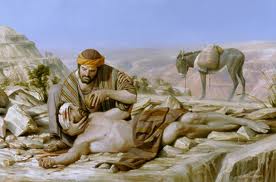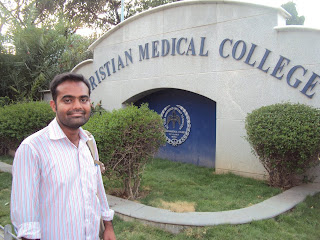Jesus and Dalits- The struggle between dual identities.
I am venturing
into murky ground here. There are people who have laid down lives for their
worldviews and it is difficult to pull it off without causing offence. Let me
confess that I am a struggling Christian and a Dalit trying to make sense of my
identity in the Indian society of 2015. This prose is a natural consequence of
that struggle and it is, I believe, the state of affairs of lakhs in our
country. I have long tried to evade this topic, but I now think that I have to
get into deeper waters to arrive at a semblance of truth, which according to
the Good Teacher would set me free. I also admit that my opinion may not be
complete or circumspect. After all my views are the product of my life and the
realities it has presented so far- incomplete and at some instances wet behind
the ears.
I am a member of
a fusion family. My father is an atheist and a Dalit. My mother is a Christian
and a Dalit. Being their child I had the unpleasant experiences of being
bombarded by the philosophies of my parents, who would end the episode in a
tone of vehemence and personal insults. Needless to say, that those childhood
indoctrination sessions, had no effect on me. Some may wonder, what is the
tension between being a Dalit and a Christian! After all one is the community
you belong to and the other is a religion to which you owe your allegiance. But
in some states of the country (which includes mine), a Dalit cannot practice
any religion he wants but can subscribe to only few paths laid down in the
constitution. If you want to practise any other religion, you’ll have to forgo
the benefits as a member of Scheduled caste or tribes. That nuance in the law
opened a Pandora’s Box for me.
When I gave my
pre-medical entrance, I was a Dalit compatible with the larger culture the
members of the community must follow. Attending church on Sunday, buying new
clothes for Christmas and distributing cakes on New Year’s Eve was a by-product
of my maternal Christian influence. In college, I continued to occasionally
drop in to Church services until the most improbable thing happened to me. I
HAD A PERSONAL ENCOUNTER WITH JESUS. When I say that I don’t mean that a
surreal figure in white with flowing hair and baritone voice knocked at my
hostel door and said- ‘Behold I am the Lord’. But there was a peace and joy
that shrouded my heart that moment. I could make sense of the good news that
Jesus died for the sins of the world and He being the only son of God rose
again on the third day. Jesus, the only Holy man (and God) without any sin to
have walked on this planet, bore the punishment I had to receive and died in my
place. Now I can be with Him in eternity. Now I have to live for Him in this
world sharing His love and comfort to the suffering millions. In short I became
a Christian. I wanted to study those Scriptures with renewed vigour and what
Christ said and did personally, to prevent any hearsay guide my infant faith.
It was then that
my struggle started. My friends were still Dalits and my radical change in
affiliation worried them. I began to distance myself from them and developed a
holier-than thou attitude losing a lot of friends. Once a year, we had a
get-together when we could meet both seniors and juniors from our community. I
felt that as a Christian, I had nothing to do with people who did not know the
truth. Dining with them, I thought, was fraught with spiritual detriment. I did
not want to garland Dr.B.R. Ambedkar, the champion for Dalit causes, fearful
that the Deity of Christ was at risk, with a bunch of flowers. Naturally I,
with my Christian friends almost severed bonds with the members of our
community. We cajoled ourselves that adhering to the truth was costly and these
relationships were the sacrifices we had to make.
But as I read
the Bible and observed the personality of Jesus from close quarters, I soon
realised that I was utterly UNCHRISTIAN in my approach to my former friends.
Jesus who lived thirty three and a half years in rural Palestine 2000 years ago
was a Jew. The societal sanctions during Jesus’ time were much fiercer than
today. Being a Jew then could be equated to a forward caste of today. But His
association with the forward caste ended there. Most of His public life was
with ordinary, poor, lower caste folk. Fishermen, tax collectors- notorious for
their embezzlement of public funds, prostitutes, sick, lepers-the untouchables
of that society, Samaritans- THE DALITS OF PALESTINE, were his friends. Though
He was a Jew, his followers were not Jews. He dined with sinners and made weak
His disciples. He revealed His glory, first to Samaritan woman, the lowest in
the echelons of that society and He made the good character of His parable,
again a Samaritan. He abhorred the self-righteous people. He blessed the humble
hearted. In short, He lived His life with the members of weaker sections. He
did not just leave it there, but He commissioned His disciples to go and do the
same.
 |
| ( The hero of the good Samaritan fable was a Dalit of those days. ) |
I misread the
heart of God. No person on this planet
deserves God’s mercy. It is only by sheer grace, a free gift from God that he/she
receives salvation from God. So, any Christian, whatever may be His
denomination and age, cannot boast of His works earning him the righteousness
before God. ‘Holier-than-thou’ attitude does not make sense, since I came to
Christ realising my unworthiness. Calling others sinful does not make sense,
because I was a sinner in the first place. Unfortunately that is the attitude
of most of the believers in Jesus as they start to follow Him. Christian
witness- speaking about Jesus to others starts from our family, then our
community and then to the larger realms. Being a Dalit, my first friends and
focus must be members of my community than others.
Not that Christianity promotes divisions and
castes in society, but these are worldly realities we have to take to account.
In fact in the hierarchical society of those times, Christianity presented a
new social structure with no hierarchy based on race and caste. Paul, one of
the Apostles wrote clearly to one of the early churches that ‘No Jew, no
Greek, no man, no woman, no rich no poor- Christ has died for everyone’, introducing
the equality of all spiritually. Women who were considered second grade humans
took active part in ministry of the church. Having spread from 1st
century Palestine, Christianity had to face the rigid caste system in our
nation. Though introduced as a religion that does not tolerate grading people
by the virtue of birth, even the most devout Christians often ask for same caste people for marriage. Off late
there have been few churches exclusive for certain castes bringing the
Christian faith ignominy. One has to confess that caste is a stronghold that
Christianity has not yet broken. And people like me struggle with the
conflicting identities.
 |
| (Samaritan Woman was the last social class of that day) |
Now I am
committed to Christ. But I am still a Dalit. I am an Aadi Andhra Mala, to be
exact. God made me to be born in this family.
This may change equations according to the law. I may have to give up
reservations for further education. And I gladly did give them up. Now I give
all exams in open category as a witness to the Greater Affiliation. I will
still be a Dalit in a society, and the first person to whom I will offer
service, help, counsel and aid would be a Dalit. Not that I will abandon other
communities. My best friends, my mentors, my teachers, my inspirations- are all
members of other castes. I’ll have to start like this at first but I must work
for the ideal where castes will be blurred to insignificance. The reason why I
have to serve Dalits is not because I belong to that community, but because
they are the most backward people in the society. I can testify to that fact
because I worked in tribal Orissa for two years where Dalits comprise 95% of
population. Poverty, ignorance, illiteracy are at their heights. Jesus said, “When
you do good things to the least of your brethren, you have done it to Me!”.
We do not have to think long to know who the least of the brethren are!


Comments
Post a Comment